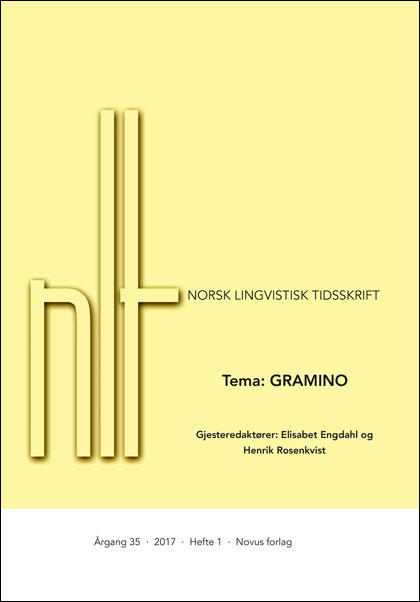Sammendrag
In Swedish today, du ('you') is sometimes used with generic reference. This use of generic du is often claimed to be a new invention, triggered by English influence in the late 20th century. However, in this article an analyÂsis of occurrences of du from the period 1225-2013 is presented that demonstrates that generic du was used even as early as the Old Swedish period (1225-1526), i.e. long before the English influence on Swedish began. Nevertheless, the analysis also reveals that the use of generic du has increased in newspapers during the 20th and the beginning of the 21st century, and that examples of generic du from before and after the middle of the 20th century differ in several important aspects, the most important being that du in Swedish today often refers to the speaker him/herself. In this article it is argued that this development is best understood as a case of informalization (e.g. Fairclough 1995) and subjectification (e.g. Traugott 2010).Forfattere beholder opphavsretten og gir tidsskriftet rett til første publisering av arbeidet. En Creative Commons-lisens (CC BY-SA 4.0) gir samtidig andre rett til å dele arbeidet med henvisning til arbeidets forfatter og at det først ble publisert i dette tidsskriftet.

